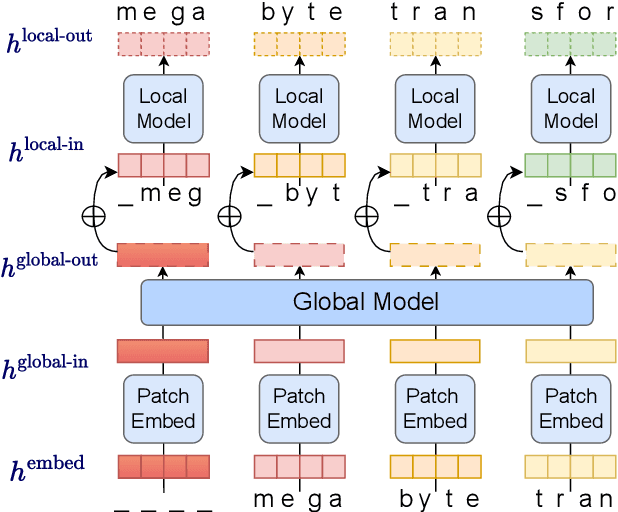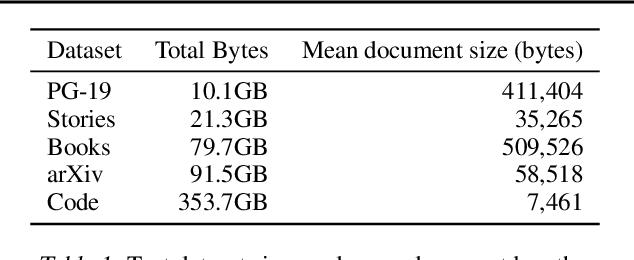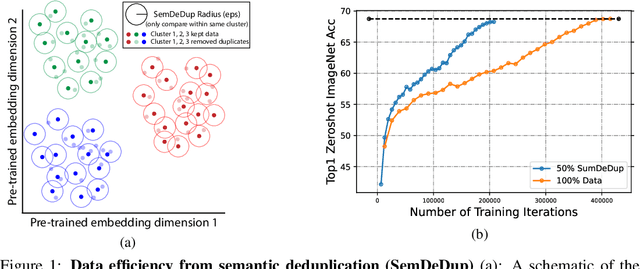Dániel Simig
MEGABYTE: Predicting Million-byte Sequences with Multiscale Transformers
May 19, 2023



Abstract:Autoregressive transformers are spectacular models for short sequences but scale poorly to long sequences such as high-resolution images, podcasts, code, or books. We proposed Megabyte, a multi-scale decoder architecture that enables end-to-end differentiable modeling of sequences of over one million bytes. Megabyte segments sequences into patches and uses a local submodel within patches and a global model between patches. This enables sub-quadratic self-attention, much larger feedforward layers for the same compute, and improved parallelism during decoding -- unlocking better performance at reduced cost for both training and generation. Extensive experiments show that Megabyte allows byte-level models to perform competitively with subword models on long context language modeling, achieve state-of-the-art density estimation on ImageNet, and model audio from raw files. Together, these results establish the viability of tokenization-free autoregressive sequence modeling at scale.
SemDeDup: Data-efficient learning at web-scale through semantic deduplication
Mar 22, 2023



Abstract:Progress in machine learning has been driven in large part by massive increases in data. However, large web-scale datasets such as LAION are largely uncurated beyond searches for exact duplicates, potentially leaving much redundancy. Here, we introduce SemDeDup, a method which leverages embeddings from pre-trained models to identify and remove semantic duplicates: data pairs which are semantically similar, but not exactly identical. Removing semantic duplicates preserves performance and speeds up learning. Analyzing a subset of LAION, we show that SemDeDup can remove 50% of the data with minimal performance loss, effectively halving training time. Moreover, performance increases out of distribution. Also, analyzing language models trained on C4, a partially curated dataset, we show that SemDeDup improves over prior approaches while providing efficiency gains. SemDeDup provides an example of how simple ways of leveraging quality embeddings can be used to make models learn faster with less data.
 Add to Chrome
Add to Chrome Add to Firefox
Add to Firefox Add to Edge
Add to Edge